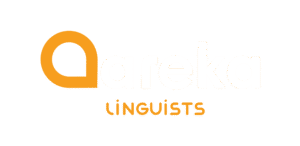In today’s interconnected world, the reach of knowledge should not be limited by language barriers. Academic researchers and educational institutions increasingly aim to share their findings, programs, and resources with a global audience. However, this ambition requires more than just translation; it demands accurate, culturally appropriate, and domain-specific communication. This is where native translators play a vital role.
Accuracy Rooted in Language Intuition
Academic content is inherently complex. Whether it’s a scientific paper, curriculum material, or a grant proposal, precision is essential. Native translators, those who translate into their first language, have an instinctive grasp of linguistic nuance, tone, and contextual meaning. This allows them to render translations that feel natural and accurate to the target audience. While a non-native translator might provide a technically correct version, it may sound awkward or unclear to native readers, compromising the content’s credibility and impact.
Cultural Relevance Builds Trust
Researchers and institutions often engage with audiences from various cultural backgrounds. A native translator brings cultural awareness to the task, ensuring the content aligns with local values, expectations, and communication styles. For example, translating course content for students in Japan versus Brazil requires adjustments not just in language but also in tone, examples, and cultural references. When messages are culturally relevant, they build trust and enhance the learning experience.
Subject-Matter Expertise Meets Language Mastery
Many native translators specialize in academic disciplines—such as healthcare, engineering, social sciences, or economics. This dual expertise allows them to accurately interpret complex terminology and maintain the integrity of the original content. For researchers, this is crucial. A single mistranslation in a clinical trial report or technical paper can lead to misunderstandings and reduce the research’s credibility. Native translators with subject-matter knowledge ensure that precision and clarity go hand in hand.
Greater Reach for Institutional Impact
Universities, think tanks, and e-learning platforms increasingly operate on a global scale. To expand their reach, they need to communicate effectively in multiple languages. From translating websites and admissions brochures to localizing massive open online courses and academic journals, native translators enable institutions to connect with international students, partners, and stakeholders. Clear, professional translations help institutions grow their global presence and foster meaningful academic collaborations.
Better Learning Outcomes
When students receive educational materials in their native language, they engage more deeply and learn more effectively. Native-language content helps bridge understanding gaps, especially for complex topics. For international students, having access to translated resources can create a more inclusive and supportive learning environment. Similarly, when researchers publish or disseminate findings in the local language of the target population, it increases relevance and community impact.
Final Thoughts
In a multilingual academic ecosystem, the quality of translation can greatly influence the effectiveness and reach of your work. Native translators offer more than linguistic fluency; they bring cultural sensitivity and domain knowledge to every project.
Whether you’re an institution looking to globalize your programs or a researcher aiming to share your findings worldwide, working with native translators ensures your message is both clear and compelling.
Ready to make your academic content truly global? Partner with native-language experts who understand your subject and speak your audience’s language.
